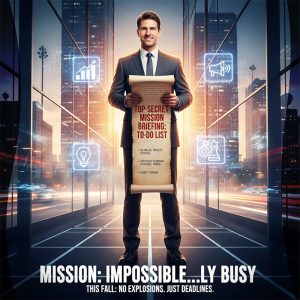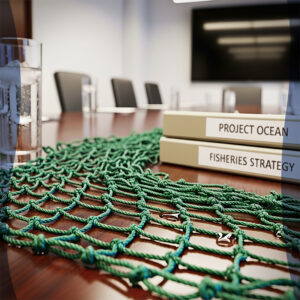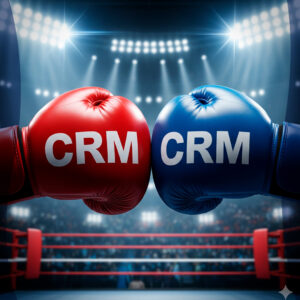
December Business Playbook: Retain Clients & Boost Revenue
Prepare Your Business for Q1 2026 December is not just
By Jean-Charles Spanelis – July 03, 2023
How does our coaching for Sales departments work in practice?
What do we do concretely during these commercial coaching sessions?
List of modules described on www.fineliscoaching.com
Collective and individual coaching & feedback sessions with the founding director every month!
Immediate action and transmission of the right messages between the Manager and his sales team (ascending and descending information).
Flexibility and adaptation to the month by month of the Experts and Coaches of Fineliscoaching.com
And in terms of price, Coaching is at the price of coffee just enough time to enjoy this coffee between 2 meetings!
The best way for the Manager to achieve his commercial objectives is to use a third party, the Finelis expert or the external Finelis coach specializing in operational commercial strategy, who will be able to convey the messages to his team, but above all and above all to help them individually to achieve their objectives.
Share a problem, think calmly and collectively, listen to each other with kindness, draw up an action plan and voila! The motivation and the commitment of the commercial being essential in the achievement of the objectives, an external eye, not that of a technician since very often the customer company of the commercial coaching already has the best experts and technical-commercial, but rather a glance expert in human relations and in the psychology of the customer/end prospect allows salespeople to gain sufficient perspective while gaining time, confidence and motivation on a day-to-day basis. To correctly evaluate a salesperson, you must have sufficient knowledge and experience of the Sales profession. We do not invent ourselves as Commercial Director because we are CEO or Financial Director. It’s a real job, with processes, methodologies and a lot of necessary knowledge, without forgetting a real experience of the “field”.
Beyond Finelis “best practices” so that salespeople and marketers can generate enough qualified leads early in the sales cycle, we also work on negotiation techniques in order to be able to finalize contracts as soon as possible. Many contracts never see the light of day because the sales people have played on an excess of optimism and have not been able to identify a new force in presence, a reorganization or a change of priority. Often, these sales people have failed to develop the “coach” or the ambassador and have taken refuge behind positive feedback on the technical and functional evaluation of their solution. However, understanding the motivations of the people involved in choosing a solution from the beginning of the sales cycle is essential, regardless of the sales methodology you use (BANT, MEDDIC, SCOTSMAN, etc.).
The customer’s psychology must be understood as quickly as possible and if your solution brings in a certain and rational way a certain and proven advantage via a technical workshop, the fact remains that some people do not want your solution for very good reasons. often very personal and individual. It is of course necessary to convince and rely on these people so that they do not do their best to miss this sales opportunity.
Before Covid19, face-to-face meetings were essential and in general, having many participants with a certain decision-making power was a good omen, even if of course the salesperson had to know how to be proactive before and after the official meetings to know the feedback. of the client, understand what can be blocking and solve the problems finely and in good intelligence by cultivating a quality human relationship with his client (neither too “pushy” nor too absent, adapted to the profile of his client).
Since Covid19 in 2020 on the whole planet, the qualitative indicators evaluating the quality of “leads” have evolved a lot. It is no longer enough to have a meeting (a “meeting”) for a salesperson to be well positioned on a deal. If the salesperson chats on his prospect’s preferred network one-to-one or exchanges messages regularly with his prospect via messaging like Whatsapp, does he really need 1 formal meeting with his client to have a real chance of success in a business operation? The answer is no.
Many companies train or educate themselves for free by attending sales demonstrations that have become almost a convenience, a normality without necessarily having an intention to buy. The systematic face-to-face having completely disappeared, it is much more difficult for salespeople to create and recreate the relationship and interaction with their prospects. Yet without the latter, signing a contract (a “deal”) in B2B is mission impossible.
Quality of the connection, of the interaction, of the relationship between 2 people (1 seller supplier and 1 potential buyer customer) is AND must of course be priority 1 for sellers of products and services. Without this quality of upstream relationship, your end customer will not spend enough time understanding and evaluating the quality of your products (technical evaluation, workshops, RFI/RFP, etc.) and the merits of your commercial proposal. For what ? Because he will not spend the necessary time to understand and therefore even less to convince his leaders internally.
Without connection, then no leadership for the selling company and even less credit for the salesperson who will only be a modest intermediary and not an orchestra conductor “driving” the commercial relationship in the very interest of the 2 parties (the buying company and the selling company).
“Connect, then lead” (Harvard Business School)
It is therefore a necessity to cultivate an excellent relationship with your prospects, but how do you do it with so many telework meetings that are a little devoid of humanity and forcing everyone to synthesize their ideas and always be more “Pro” and efficient?
The “challenge” of cultivating a quality relationship is indeed enormous and concerns most of the sales cycle once the qualified lead is generated and up to the eventual contract to be written… But how can salespeople do when they have already re-raised many times and have no response or expressions of interest (which is the case in 9 out of 10 cases when you sell to large accounts).
Having a good relationship is necessary to “drive” the relationship with your prospect.
Here is a list of recommendations that we systematically advise in our sales coaching with the many Sales teams we know:

Prepare Your Business for Q1 2026 December is not just

Between strategy, leadership, and delegation, learn how CEOs can transform their overwhelming to-do lists into powerful instruments of business clarity.

Understanding your website visitors means unlocking insights to sharpen your sales strategy, personalize outreach, and drive measurable results.

Lead generation is no longer about quantity but quality. In 2025, success comes from targeting the right prospects and guiding them with trust and care.

There is no absolute winner in the CRM battle. The right CRM is the one that matches your goals, teams and sales maturity.

Leadership can be isolating. Executive coaching provides support, perspective, and tools to help leaders make confident and effective decisions.